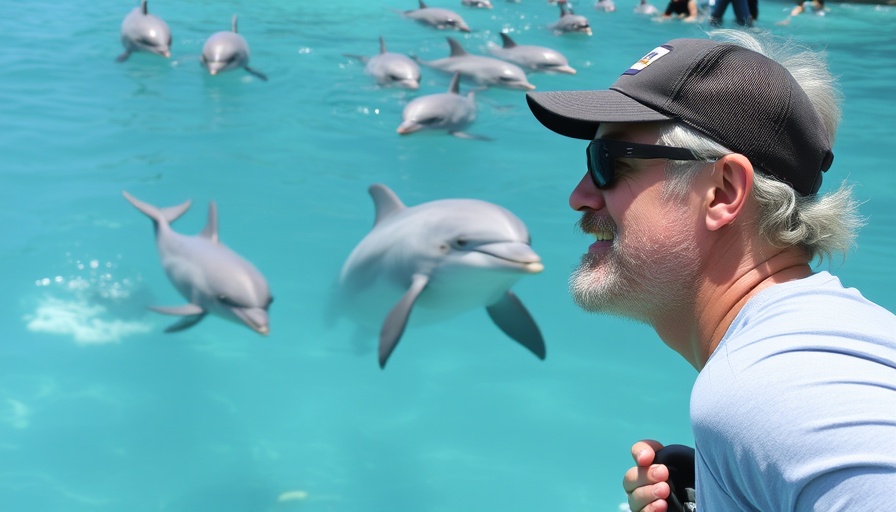
Exploring the Depths: A Lifelong Journey with Sarasota’s Dolphins
For over five decades, marine scientist Dr. Randall Wells has dedicated his life to studying the bottlenose dolphins of Sarasota, making him a quintessential figure in the marine biology community. As the director of the Sarasota Dolphin Research Program, the longest-running wild dolphin study in the world, Wells has become intimately acquainted with these captivating creatures. On a sunny June morning, I had the rare opportunity to join him aboard a small powerboat on Sarasota Bay, witnessing firsthand the profound connection he shares with the dolphins.
Fascination Rooted in Science: The Enigmatic Nature of Dolphins
On our journey, Wells meticulously identified dolphins by their unique dorsal fin patterns—a practice rooted in scientific methodology. With each sighting, he adds to a massive database, documenting their lives and behaviors. Viewing the dolphins, I observed how their interactions seemed to echo nuances of social structures often seen in human communities. Dr. Wells notes, “We’ve been at this for 55 years. They’ve been around for 25 million years. Uncovering the variability in what they do...is endlessly fascinating.” His passion is evident, revealing a lifelong dedication that transcends mere observation.
Understanding Dolphins: More Than Meets the Eye
Humans have marveled at dolphins for centuries. The historical context stretches back to ancient Minoan civilization, where they were depicted in art as symbols of grace and intelligence. However, Wells refrains from indulging in myths that anthropomorphize these animals. Instead, he emphasizes the importance of scientific objectivity, stating, “You have no idea what’s going on in their heads.” This perspective invites a respect for the dolphins’ autonomy and the recognition of their unique intelligence.
Relevance to Conservation: Implications for Future Generations
As environmental concerns mount and ecosystems face unprecedented threats, Wells’ work highlights the critical importance of conservation. The data collected are not just numbers; they represent individual lives and the overall health of marine environments. Understanding dolphin dynamics is pivotal as it informs efforts to protect their habitats. In a time when our oceans are under siege, researchers like Wells provide invaluable insights into how changes in the ecosystem can directly impact species survival.
Local Wisdom: The Community’s Role in Dolphin Conservation
For residents of Suncoast, the story of these dolphins is also a community narrative. Their presence in Sarasota’s waters is more than just a point of local pride; it reflects the region’s ecological well-being. Engagement from local communities can bolster conservation efforts. By fostering awareness and appreciation among residents, we ensure that future generations inherit a thriving marine environment.
Making a Difference: How You Can Help
Joining the efforts of the Sarasota Dolphin Research Program can take various forms. Individuals can volunteer, participate in local clean-up activities, or even engage in educational programs dedicated to marine conservation. Each action, no matter how small, contributes to the larger goal of sustaining this marine heritage.
Discovering More: Engaging with the Science of Dolphins
As we concluded our boat tour, I left with a newfound appreciation for the dolphins and the complexity of their lives beneath the surface. Dr. Wells' dedication serves as a reminder of our shared responsibility to protect these intelligent beings. If you are intrigued by the world of dolphins or want to contribute to protecting our marine ecosystems, consider exploring how you can get involved with local conservation efforts.
Understand that every effort counts in ensuring that this dynamic ecosystem flourishes for generations to come. Embrace the opportunity to not only learn about but also protect these magnificent creatures that share our waters.
Join the movement to protect our marine environments and support local conservation efforts! Your engagement is essential for fostering a healthy ecosystem that benefits both humans and wildlife.
 Add Row
Add Row  Add
Add 


Write A Comment